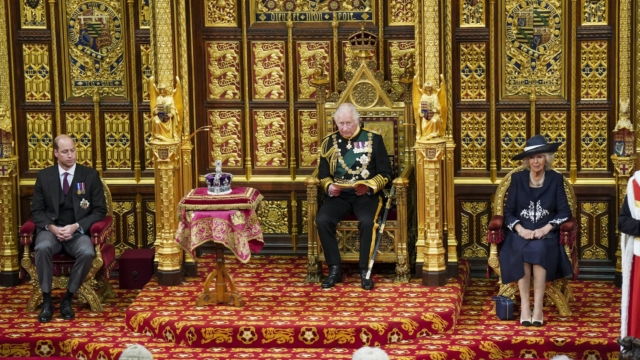Attached a copy of the lobby pack that supports the Queen’s speech. Here are some…
COVID-19 Update 21st October 2020
- HSE Inspections
The Health and Safety Executive is carrying out spot checks and inspections on all types of businesses in all areas to ensure they are COVID-secure, checking that the measures that businesses have put in place are in line with government guidance.
Their website includes further details on this and includes a short video explaining:
-
- how spot checks and inspections work
- what their inspectors will need to check
- how they can help businesses keep their workplace COVID-secure
- actions they will take if employers are not managing the risk of COVID spreading
- Global Travel Taskforce
I have attached a copy of a letter from Robert Courts MP – Minister for Aviation, Maritime and Security which outlines the work being undertaken by the Global Travel Taskforce and a series of workshops that are being help to feed into this work including a DCMS organised workshop tomorrow on Restarting international travel, engagement and communications.
- Covid Alert Areas in England
The guidance for South Yorkshire moving to Very High Alter status has been published
https://www.gov.uk/guidance/local-covid-alert-level-very-high-south-yorkshire
And the list of Covid Alert areas in England has been updated to take into account Greater Manchester and South Yorkshire
https://www.gov.uk/guidance/full-list-of-local-covid-alert-levels-by-area
- Performing Arts Guidance Updated
The Primary Guidance on how businesses should put on shows and performance in a Covid secure manner has been undated with new guidance on Staging and capacity highlighting that In Medium Local Covid Alert Level areas it is against the law to gather in groups of more than 6, unless everyone is from the same households or support bubble and, in High and Very High areas, it is against the law to gather indoors in groups which do not consist only of the same household and support bubble.
https://www.gov.uk/guidance/working-safely-during-coronavirus-covid-19/performing-arts#arts-3-2
- Questions in Parliament
Here’s the answers to further questions that Baroness Doocey has asked regarding support for tourism businesses in Very High Alert areas and guidance on how businesses should treat bookings from customers who are travelling from Very High Alert areas.
Q1. Many accommodation businesses in Very High Alert areas will effectively be closed as a result of the Guidance that people do not make unnecessary journeys into the area or stay overnight. Please can you clarify if their staff are eligible for the Extended Job Support Scheme.
Q2. In addition, many travel-related businesses will also be effectively closed – local travel agents, tour operators and coach operators who will be unable to take people anywhere – please can you clarify whether or not they are eligible?
This Extended Job Support Scheme is only eligible to cover businesses that, as a result of restrictions set by one or more of the four governments in the UK, are legally required to close their premises. This includes premises restricted to delivery or collection only services from their premises.
We are acutely aware that businesses may suffer over the winter. We want to support those that need it the most: those that are impacted by Covid and who can support their employees doing some work, but that need more time for demand to cover. Businesses that have not been legally required to close can claim support from the Job Support Scheme – designed to protect viable jobs in businesses who are facing lower demand due to Covid. The Government will pay a third of hours not worked, with the employer also contributing a third. The scheme will open on 1 November.
Q3. Please can you clarify the legal situation for accommodation businesses outside Very High Alert areas – are they required to refuse bookings from people coming from inside these areas or, because limiting unnecessary travel outside the area is just guidance, do they have to accept the booking because it is a legal contract?
Accommodation providers may continue to take bookings, and we recognise there are a number of reasons people may need to stay overnight (e.g. for work or for school). However, we are asking all individuals to avoid overnight stays within an Alert Level: Very High area other than for those types of visit.
We encourage all accommodation providers to consider their approach towards guests from inside areas designated Local COVID Alert Level: Very High.
Accommodation providers should communicate to all customers, including those with existing bookings, reminding them not to travel outside the area unless it is essential (such as for essential work purposes or attending a funeral). For existing bookings, accommodation providers should give guests a chance to cancel their bookings if they intend on no longer travelling and staying at the accommodation.
Accommodation providers outside of an area with restrictions may refuse a booking or cancel a booking from guests from inside a ‘Local COVID Alert Level: Very High’ area. The decision to refuse service is at the discretion of the business owner, and the terms of the booking contract may allow for discretionary cancellations. Any decision to refuse service should be done with sufficient notice to the guest, and we would expect any funds already paid by the consumer to be repaid.
2020-10-21 From Minister Courts - GTT

